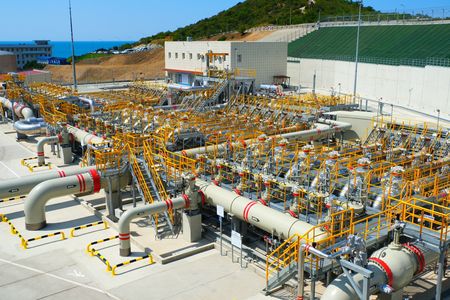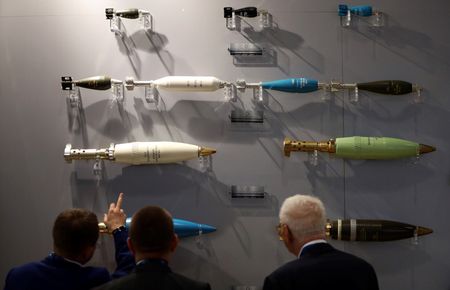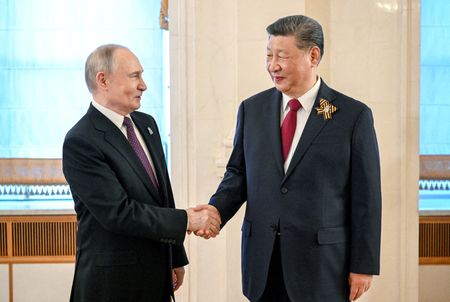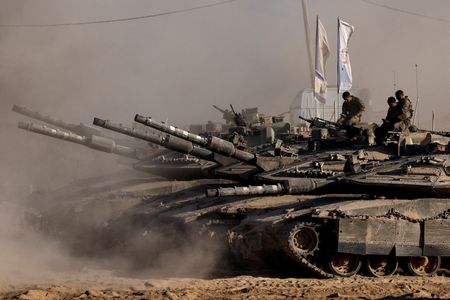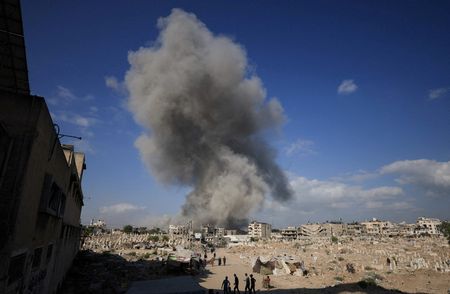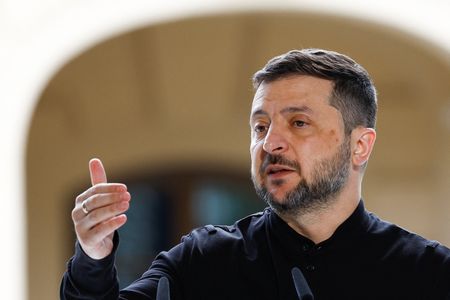MOSCOW (Reuters) -The Western-backed Caspian Pipeline Consortium is preparing to challenge in a Russian court a regulatory order that has crippled its exporting capabilities and threatened to cut oil flows to global markets, three industry sources told Reuters.
Earlier this month, Russia’s transport regulator ordered the CPC consortium, whose shareholders include Chevron and Exxon Mobil, to suspend operations at two of the three moorings at its Black Sea exporting terminal following snap inspections related to a massive oil product spill in December.
Under Russian administrative law, a court will examine the regulator’s decision. The CPC plans to challenge the decision at the hearings, which are expected in the coming days, the sources said, speaking on condition of anonymity.
The CPC declined to comment. The regulator, Rostransnadzor, did not reply to a request for comment.
The CPC pipeline is a key oil export route for Kazakhstan, which – due mainly to rising production from the giant Chevron-led Tengiz oilfield – has been breaching export quotas within the OPEC+ producer group, which includes OPEC and Russia.
Other OPEC+ members including Saudi Arabia have been also pressing Kazakhstan to cut production to meet its quotas.
On Thursday, OPEC+ decided to raise output ahead of schedule, signalling the group was confident non-compliant members would reduce output in the coming weeks.
According to traders’ estimates, the CPC pipeline, which ships about 1% of world oil supply, could lose about 50% of its capacity if it can only rely on one berth.
Oil exports via the CPC pipeline were set at 1.7 million barrels per day, or approximately 6.5 million metric tons, for April, meaning that supplies of more than 800,000 barrels per day could potentially be lost.
Traders also said that oil production in Kazakhstan, which exports around 80% of its total oil via the route, would decline if the restrictions remain in place for more than a week.
The CPC said this week that restrictions at the terminal would remain until the irregularities detected by the watchdog, which have not been made public, are dealt with.
Russia has pressured the consortium in the past, restricting its exports due to stormy weather and technical issues.
In 2022, a court in the Russian city of Novorossiisk ordered the CPC to halt the terminal operations for 30 days over its paperwork on oil spills.
“Many in Russia have an aversion to the CPC pipeline as it is the only major energy transit route that is not under the control of the Russian state,” said Benjamin Godwin, a partner at London-based PRISM Strategic Intelligence, an investment advisory firm.
“The pipeline does, however, present an opportunity for Russia to place pressure on the U.S. and Europe, given its use by global energy majors.”
The restrictions were imposed as U.S. President Donald Trump said he was unhappy with Russia over the rate of progress in peace talks with Ukraine, and threatened to impose secondary tariffs on buyers of Russian oil.
Chevron’s Kazakhstan oil venture, Tengizchevroil, said in emailed comments it remained focused on safe and reliable operations and referred further questions to the CPC.
Russia, the world’s second-largest oil exporter, also on Wednesday imposed restrictions on another major oil export route, suspending a mooring at the Black Sea port of Novorossiisk only a day after the CPC restrictions came into effect.
(Reporting by ReutersEditing by Mark Potter and David Evans)

